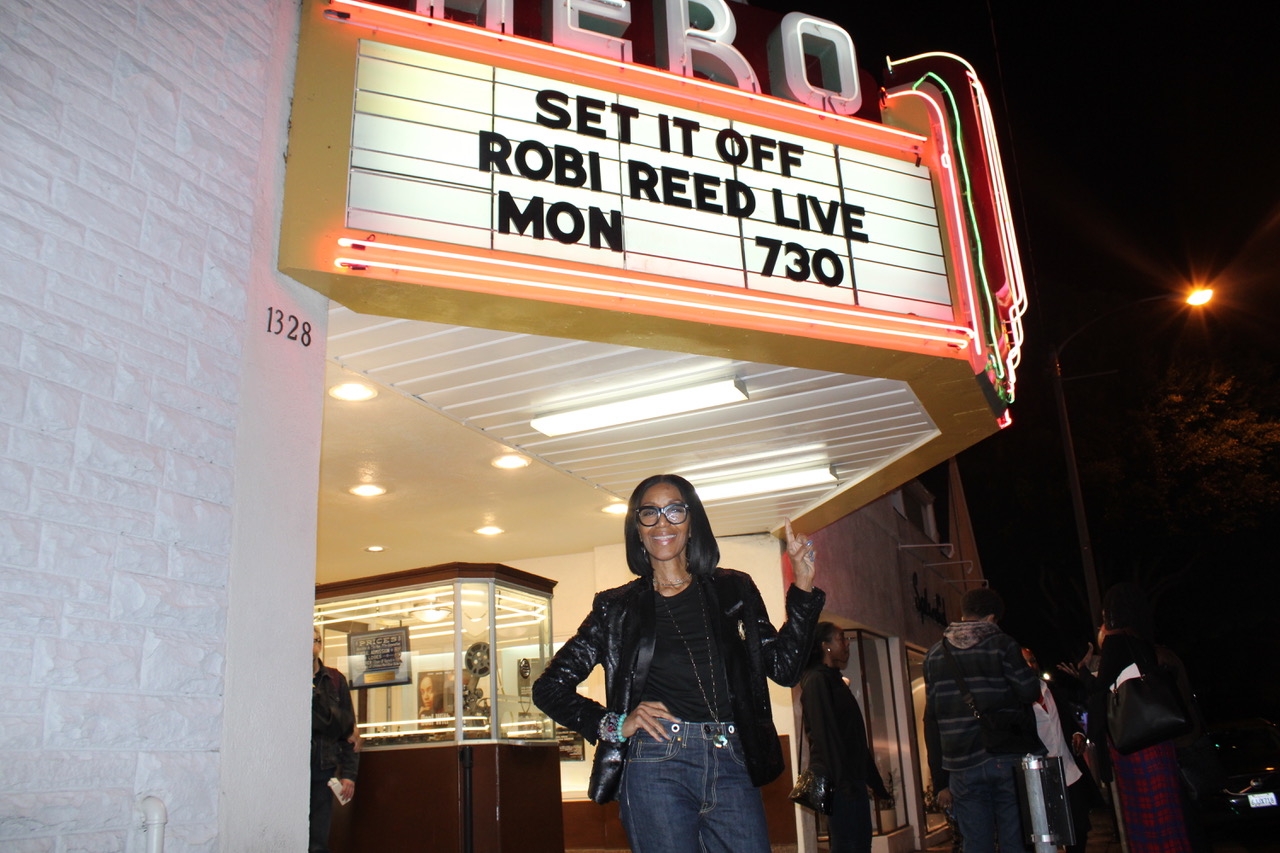
- Film
An Inspirational Screening of “Set It Off”
Perpetratin’ Realism – 1990s Black Film, the HFPA-funded American Cinematheque series, has successfully continued for the last eight months to bring New Black Realism films to Los Angeles audiences. Films like New Jack City, Boyz n the Hood and Eve’s Bayou have reinvigorated issues surrounding Black life and racism through the prism of today’s heightened awareness. The series has been curated by Dr. Felice Blake, Dr. Keith Harris and Dr. Roya Rastegar. Imani Davis is the head programmer.
On Monday night, January 30, 2023, the Aero Theatre in Santa Monica was nearly full for a 35 mm screening of Set It Off, the 1996 F. Gary Gray film that became a box office hit and earned multiple awards. Four Black women who can barely make ends meet and are in a state of constant friction with conditions of poverty, violence and racism, decide to join forces and, in an ultimate attempt to gain control of their destinies, rob a bank.
Although the outcome of the fatal combination of being Black and going against the law may have been as predictable then as it is now, Set It Off is vibrant and seductive as ever thanks to the stellar cast of protagonists including Jada Pinkett Smith, Vivica A. Fox, Queen Latifah, and Kimberly Elise. Aside from its entertainment value, the film is emblematic of a self-reflective shift in the African American culture that started in the 90s and in many ways is being fulfilled now, both times realized through cinematic expression.
The screening was spiced up by the presence of renowned casting director and longtime Spike Lee collaborator, Robi Reed, who answered questions about the film and the casting process. Stories about Kimberly Elise getting her SAG card on Set It Off, Queen Latifah saying “I am that bitch” about her character, or Reed naming herself casting director “long before I was,” have now acquired a whole other layer of meaning in hindsight.
“At that time, did you all have the sense that you were changing culture?” asked Dr. Blake. “Yes, we absolutely did,” replied Reed. “Spike [Lee] and I really believed that we were here for a purpose and that it was our mission to open doors. We knew and we believed that we were making history.” Even though she didn’t outright say it, Reed implied that Spike Lee was the herald of the change in the representation of people of color on the screen that began with his groundbreaking films in the 80s and became a movement in the 90s.
Casting Black actors in the 90s, according to Reed, was integral to “how much [the filmmakers] wanted to give people opportunity and how [they] were able to take chances on folks that didn’t have the experience.” The new standard was “by any means necessary.” “Back in those days,” she added, “it was as if we were given a blank canvas; nobody really told us what we could or couldn’t do.”
The decade was a time of collective awakening for Black Americans and their representation in cinema. “We all did what we had to do, and we believed that we were there to create opportunities and that we were there to stay. We had to do a good job in order to pave the way so that we could continue to be here.”
That is not to say that for Black actors and filmmakers, life is a breeze now. Her mentor, Reed said, would tell her that there are two kinds of people: “Those who love it and those who can’t live without it. Which one are you? … If you believe [acting] is for you, then the opportunity will come. And you have to be ready for it. If it’s a role that you auditioned for that you didn’t get, it just wasn’t your gig. It was someone else’s but yours is there, your name is on it. Just be ready for when it comes, because it will. If you stay long enough in it, it will.”
Her words resonated with the audience which obviously included a lot of aspiring actors and professionals.

